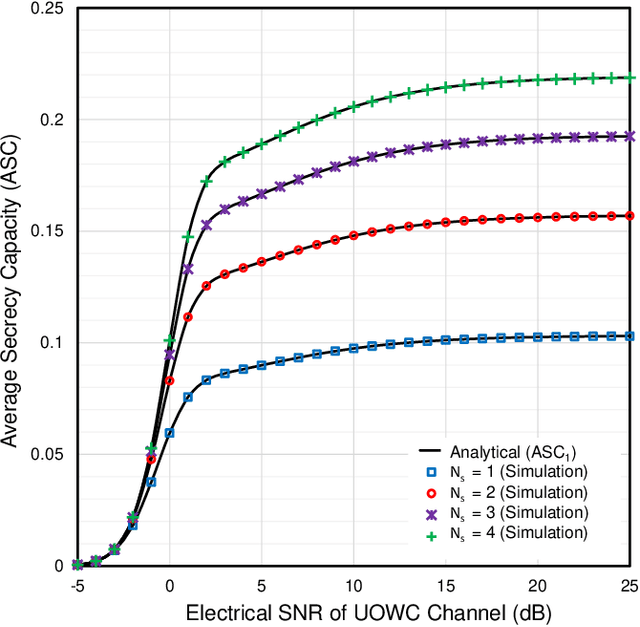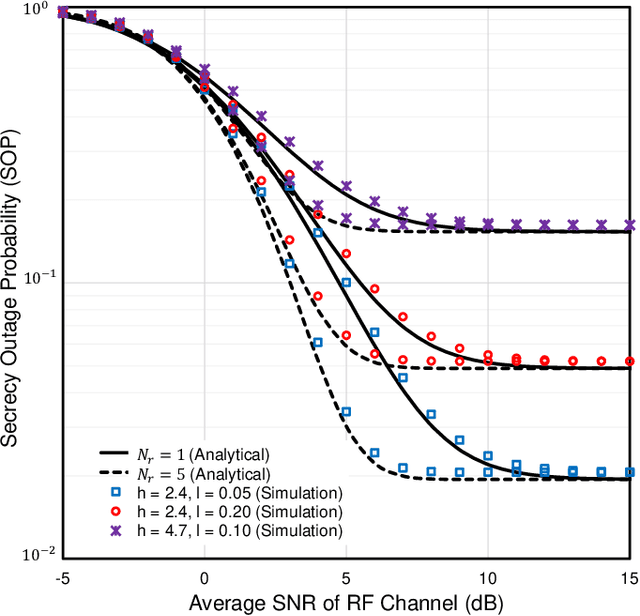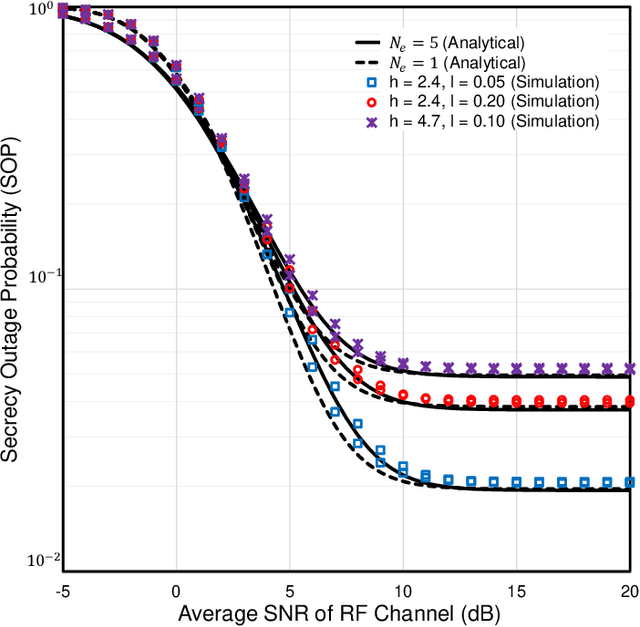Enhancing Security of TAS/MRC Based Mixed RF-UOWC System with Induced Underwater Turbulence Effect
Paper and Code
May 19, 2021



Post commercial deployment of fifth-generation (5G) technologies, the consideration of sixth-generation (6G) networks is drawing remarkable attention from research communities. Researchers suggest that similar to 5G, 6G technology must be human-centric where high secrecy together with high data rate will be the key features. These challenges can be easily overcome utilizing PHY security techniques over high-frequency free-space or underwater optical wireless communication (UOWC) technologies. But in long-distance communication, turbulence components drastically affect the optical signals, leading to the invention of the combination of radio-frequency (RF) links with optical links. This work deals with the secrecy performance analysis of a mixed RF-UOWC system where an eavesdropper tries to intercept RF communications. RF and optical links undergo $\eta-\mu$ and mixture exponential generalized Gamma distributions, respectively. To keep pace with the high data rate of optical technologies, we exploit the antenna selection scheme at the source and maximal ratio combining diversity at the relay and eavesdropper, while the eavesdropper is unaware of the antenna selection scheme. We derive closed-form expressions of average secrecy capacity, secrecy outage probability, and strictly positive secrecy capacity to demonstrate the impacts of the system parameters on the secrecy behavior. Finally, the expressions are corroborated via Monte-Carlo simulations.
 Add to Chrome
Add to Chrome Add to Firefox
Add to Firefox Add to Edge
Add to Edge